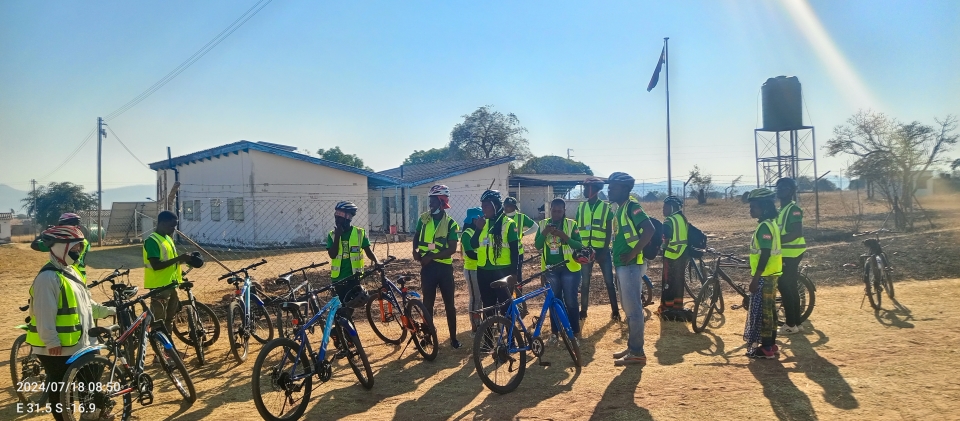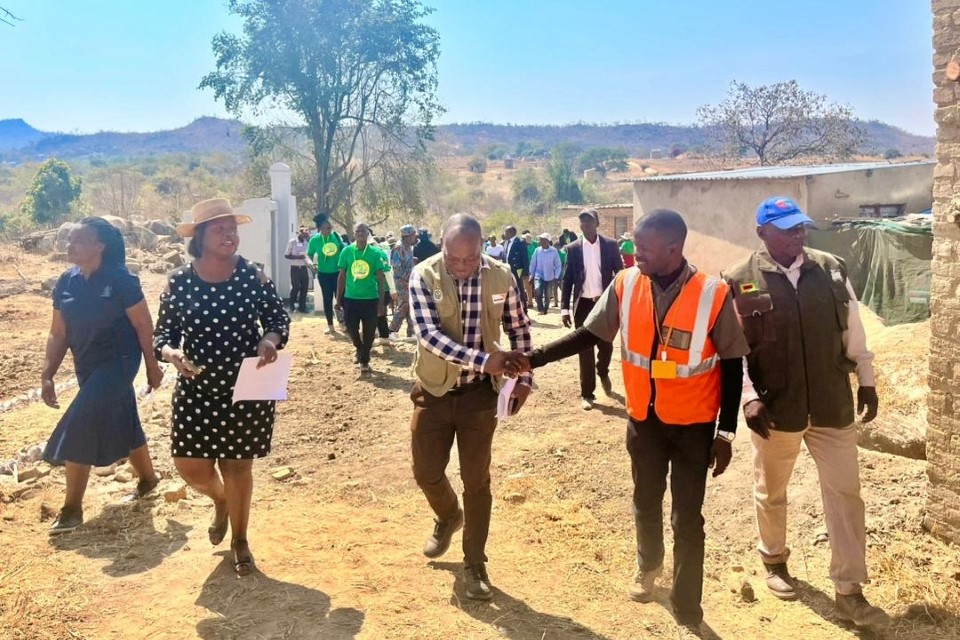…cycling part of the journey as they come face to face with the realities of climate change's impact on communities along the way, planting trees and learning how families are coping.
In an innovative approach to education and climate action, 22 students from DAPP Frontline Institute in Zimbabwe recently visited Zambia to learn firsthand, the impact of climate change on Southern Africa's diverse environments and its people.

The students from Botswana, Angola, China, Zambia, Malawi and South Africa—led by their tutor Chisoko Chamasonde, travelled from Zimbabwe over two months as part of their practical learning program. They cycled part of their more than 650-kilometre distance between Shamva in Zimbabwe to Monze in Zambia while hiking in some parts of the trip.
"Climate change is a significant issue, not just in Southern Africa, but globally. Our students need to understand the devastating challenges that climate change brings to communities, especially in rural areas where the effects are most severe," said Chamasonde, their tutor in the Advanced Project Management Course.
The team also visited various parts of rural Zambia to observe and engage with communities directly affected by climate change. Terry Lubaya, a student from Zambia reflected on the impact the trip had on him.
“…the people in the communities became my second classroom. What I learned during this travel helped me develop a positive attitude towards my work and life. It was eye-opening to see how people are surviving amidst hunger and climate change. We worked alongside local farmers who taught us about biogas energy, conservation agriculture, and resilience in the face of hardship,” shared Terry.
Terry added that the trip also strengthened his leadership and problem-solving abilities, underlining the "people to people" concept that lies at the heart of Frontline Institute's mission. As leader of his Core Group, Terry organised logistics, coordinated teams, and led discussions with local authorities.
“I learned that being a leader means being practical in actions, not just talking about things. It’s about turning ideas into solutions. This experience sparked a fire in me. I am more determined than ever to be part of the solution for the poor and vulnerable in today’s world,” he said.
The long-distance Trick Cycling Program is designed to expose students to the realities of climate change and other critical issues, such as HIV/AIDS, and TB. It brings students closer to the affected communities, including local farmers, women, youth and authorities for them to appreciate the resilience methods communities use to mitigate environmental and social challenges they face.
Meanwhile, cycling emphasizes the importance of healthy living and reduces the carbon footprint of the journey itself. The program helps build teamwork and cultural exchange while allowing students to reach remote areas.
“Our Students carried with them not just the knowledge gained from their travels, but a deeper understanding of the urgent need to address climate change. This journey exhibits practical learning and the role of education in fostering the next generation of leaders committed to sustainable development.

They started their trip on July 5 from Shamva, Zimbabwe and arrived in Monze, Zambia on August 26.
Along the way, the students planted 100 fruit trees and renovated five classrooms in Madziva, Zimbabwe. In Zambia, they supported DAPP’s efforts to combat climate change and enhance rural livelihoods in Monze, Southern Province.


